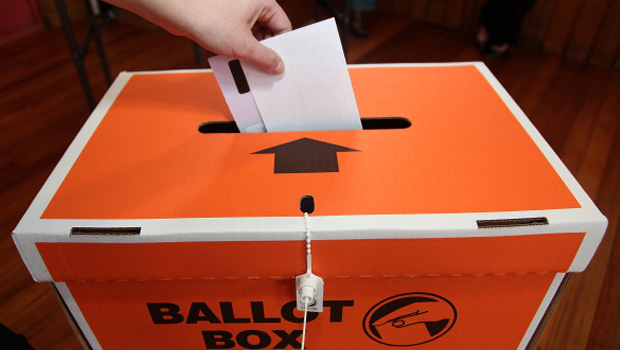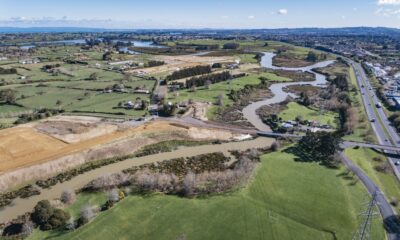Politics
Labour Voices Concerns Over Proposed Changes to Voting Laws

Proposed changes to voting laws in New Zealand have sparked significant debate, particularly among opposition parties. Justice Minister Paul Goldsmith has outlined plans to implement reforms that would eliminate election-day enrolment, prohibit voting by prisoners, and restrict free food and entertainment at polling stations. Goldsmith argues that these measures aim to streamline the electoral process and reduce delays in vote counting once polling closes.
Opposition voices, including Duncan Webb, the Labour Party’s justice spokesperson, have raised concerns about the potential impact of these changes on democracy. Speaking on a recent interview with Andrew Dickens, Webb emphasized the importance of accessibility in the voting process. He noted that many citizens forget to update their enrolment details for various reasons, and suggested that every vote matters in a functioning democracy. “We would prefer a system where everyone has a chance to participate,” he stated.
The proposed reforms, set to be discussed in March 2024, have prompted questions about their broader implications. Critics argue that limiting enrolment options could disenfranchise voters, particularly those who may encounter barriers to accessing the voting process. Webb highlighted that making voting more inclusive should be a priority, rather than instituting measures that could restrict participation.
As the government prepares to move forward with these proposals, the Labour Party is calling for a thorough examination of their potential effects. Webb’s remarks reflect a growing concern that the changes could disproportionately affect underrepresented groups in society. The Labour Party is advocating for a model that supports voter engagement and ensures that all eligible citizens have the opportunity to cast their votes.
The debate surrounding these proposed changes underscores the ongoing conversation about voting rights and democratic participation in New Zealand. As electoral reforms are considered, the implications for voter turnout and public trust in the electoral process remain at the forefront of discussions among lawmakers and citizens alike.
In summary, the proposals by Goldsmith have ignited a significant dialogue on the future of voting in New Zealand, with key figures like Duncan Webb pushing for a system that prioritizes inclusivity and accessibility. As the conversation develops, it will be crucial to monitor how these changes, if enacted, will shape the upcoming elections and the broader democratic landscape.
-

 Sports2 months ago
Sports2 months agoNetball New Zealand Stands Down Dame Noeline Taurua for Series
-

 Entertainment2 months ago
Entertainment2 months agoTributes Pour In for Lachlan Rofe, Reality Star, Dead at 47
-

 Entertainment2 weeks ago
Entertainment2 weeks agoNew ‘Maverick’ Chaser Joins Beat the Chasers Season Finale
-

 Sports2 months ago
Sports2 months agoSilver Ferns Legend Laura Langman Criticizes Team’s Attitude
-

 Politics3 weeks ago
Politics3 weeks agoNetball NZ Calls for Respect Amid Dame Taurua’s Standoff
-

 Entertainment2 months ago
Entertainment2 months agoKhloe Kardashian Embraces Innovative Stem Cell Therapy in Mexico
-

 Sports2 months ago
Sports2 months agoGaël Monfils Set to Defend ASB Classic Title in January 2026
-

 World3 months ago
World3 months agoPolice Arrest Multiple Individuals During Funeral for Zain Taikato-Fox
-

 Entertainment4 weeks ago
Entertainment4 weeks agoTyson Fury’s Daughter Venezuela Gets Engaged at Birthday Bash
-

 Sports4 weeks ago
Sports4 weeks agoHeather McMahan Steps Down as Ryder Cup Host After Controversy
-

 Entertainment4 weeks ago
Entertainment4 weeks agoTyson Fury’s Daughter Venezuela Gets Engaged at Birthday Bash
-

 World4 weeks ago
World4 weeks agoNew Zealand Firefighters Plan Strike on October 17 Over Pay Disputes




















